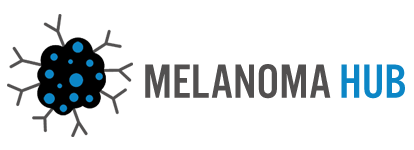Initial Grading Reminder
CTCAE Criteria for Itchiness:
Grade 1 (Mild): Mild or localized; topical intervention indicated
Grade 2 (Moderate): Intense or widespread; intermittent; skin changes from scratching (e.g., edema, papulation, excoriations, lichenification, oozing/crusts); oral intervention indicated; limiting instrumental ADLs
Grade 3 (Severe): Intense or widespread; constant; limiting self-care ADLs or sleep; oral corticosteroid or immunosuppressive therapy indicated
Assessment and Grading
Characterize the symptom (onset, pace)
Ask the patient:
Have you had an issue with itchiness/dry skin in the past? Where on your body is it itchy? Do you have a rash or any tiny red bumps where it is itchy? If so, could you please send a photo? Are you taking any new medications, OTCs, supplements, or marijuana (especially antibiotics or anti-seizure medications)?
Grade the symptom
Ask the patient:
How itchy is your skin? Have you been scratching it? Is it interfering with your normal daily activities or sleep?
Patient Query Regarding Other Symptoms/Red Flags
Ask the patient:
Do you have a rash over more than 50% of your body? Is your mouth involved? Do any of the sores look infected? Do you have yellowing of the skin, abdominal (belly) pain, abdominal bloating, and/or nausea?
Patient Factors to Consider That Affect the Approach to Intervention
Consider the following in individualizing the intervention: Is the patient a good or poor historian? Any language barriers or cognitive deficits? Is the patient reliable (able to carry out treatment recommendations)? Does this patient have alcohol/substance abuse issues? Does the patient have transportation? Is there sufficient caregiver support?
-
Click Here for Telephone Triage
Suggested Intervention
Patients with new-onset moderate or worse (or worsening) itchiness should be seen. Patients with any of the red-flag symptoms should be seen immediately.
-
Click Here for In-Office Triage
Nursing Assessment of Potential Causes
[tab category='SkinToxicities' header="Skin Toxicities - Nursing Assessment" tab1='Look' tab2='Listen' tab3='Recognize'][tab category='Hepatotoxicity' header="Hepatotoxicity - Nursing Assessment" tab1='Look' tab2='Listen' tab3='Recognize']
Differential Diagnosis
What do you suspect is the cause of the itchiness?
